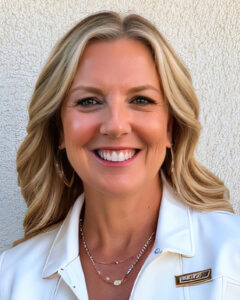Family Communication in a Complex World By Dr. Stacy Phillips, DSW, LMSW
In a world where alerts buzz constantly on our phones, news cycles never end, and stressors from school, work, and society feel ever-present, family communication has never been more critical—or more challenging.
As a single mother of three boys, I’ve learned firsthand that communication is both the glue that holds us together and the bridge that gets us through turbulent times. My sons are all at different stages of life: Jordan, my youngest, just began his first year of college; Christian is in Texas, completing his second year of school on his own; and Brady is at home pursuing his apprenticeship in HVAC. Their paths may look different, but one truth ties us all together: honest, consistent communication sustains us as a family.
Listening Before Speaking
I’ll be the first to admit—listening and not trying to control didn’t come naturally to me. As a single mother, I often felt the weight of keeping everything together, which sometimes made me want to manage every detail of my boys’ lives. But with time (and a few humbling lessons), I realized that communication isn’t about control—it’s about connection.
Some of the most meaningful conversations we’ve had as a family happened not in the big sit-downs, but in the in-between moments: late-night phone calls from Christian, car rides with Brady, or fixing something around the house with Jordan. I learned to ask questions that left space for more than a “yes” or “no.” Instead of “Did you have a good day?” I’d try: “What was the highlight of your day?” or “What was hardest today?” These questions opened doors for deeper conversations.
Honesty, Even When It’s Hard
My boys have experienced challenges many young people never should, including living through the impact of their father’s substance dependence. Early on, I had a choice: shield them from the truth or be honest in an age-appropriate way. I chose honesty. Children sense when something is wrong, and silence often causes more confusion than comfort.
By naming what was happening and giving them space to share their feelings, we were able to process the hard moments together. That choice to be transparent built trust—it showed them that no topic was off-limits and that home was a safe place to express both fear and hope.
Balancing Individuality and Unity
Jordan, my youngest, has always been driven. Now in college, he’s channeling that determination into academics, athletics, and leadership. Christian, on the other hand, is navigating independence far from home in Texas, building resilience while living alone. Brady is charting a different course altogether, pursuing skilled trades through his HVAC apprenticeship.
Each of them communicates in their own way—one through openness, another through humor, and one mostly after reflection. My role as their mom is to adapt, to meet each of them where they are, and to make sure they know their voices matter. At the same time, we maintain family rituals—weekly calls, holiday traditions, and shared stories—that keep us tethered no matter how far apart we are.
Modeling What We Teach
Over the years, I’ve been reminded again and again: my boys are watching not just what I say, but how I say it. If I urge them to listen but interrupt them, they notice. If I preach about honesty but hide my own struggles, they feel the disconnect.
One of the most powerful lessons I’ve learned is modeling vulnerability. When I admit that I don’t always have the answers, it gives them permission to be open about their own challenges. When I apologize for losing my patience, it shows them that respect runs both ways.
Practical Strategies for Parents
A few strategies that have helped us:
Tech-free time: Phones go down during meals. It’s a small rule, but it protects our time together.
Check-ins: Even a quick five-minute “how are you?” at the end of the day or week can spark connection.
Shared tasks: Doing things side by side—whether cooking, repairing something, or running errands—creates natural space for conversation.
Hope and forward focus: We don’t just talk about what’s hard; we talk about dreams, goals, and what we’re building for the future.
Why It Matters
Communication is more than just words—it’s one of the most important protective factors a family can cultivate. Research shows that young people who feel heard and connected at home are better equipped to handle stress, make healthier decisions, and build resilience.
For us, communication has been the difference between feeling fractured by life’s challenges and growing stronger through them. It hasn’t always been easy, and I’ll be the first to say I’m still a work in progress. But every time one of my boys’ calls to share good news, opens up about a struggle, or simply laughs with me at the dinner table, I’m reminded why it matters.
In today’s complex world, we can’t control every challenge our kids will face. But we can give them the assurance that at home—or wherever we are—they are heard, understood, and loved. And sometimes, that is the greatest gift we can give them. ❦
1. Listen Before You Speak
Ask open-ended questions like, “What was the highlight of your day?” instead of yes/no questions.
2. Be Honest, Even When It’s Hard
Children sense when something is wrong. Being transparent—while tailoring details to their age—builds trust and shows them that home is a safe place to talk about anything.
3. Respect Each Child’s Style
Every child has their own way of expressing themselves. Meet them where they are, rather than expecting them to fit the same mold.
4. Protect Tech-Free Time
Phones go down during meals. It’s a small rule, but it protects the sacred space of conversation and connection.
5. Create Rituals of Connection
Weekly calls, shared dinners, or even inside jokes can keep a family tethered—no matter how far apart you live.
6. Model Vulnerability
Admit when you’re overwhelmed, say sorry when you lose patience, and show your kids that growth is a lifelong process. They’ll follow your lead.
 About the Author
About the Author
Stacy Phillips develops and deploys effective solutions to challenging and systemic crime victimization issues as a Victim Justice Program Specialist with the Office for Victims of Crime (OVC) at the U.S. Department of Justice. Levering her more than 20 years of experience in the victim services field, she works collaboratively across OVC’s Discretionary and Human Trafficking Teams to create, implement, and monitor a broad range of programs. Dr. Phillips has spearheaded demonstration initiatives on polyvictimization, reducing child fatalities and recurring serious child injuries, and currently leads OVC’s opioid/drug addiction crisis initiatives. She also oversees Project Hope, a community of practice focused on law enforcement and communities. She also manages projects on crime victims’ rights enforcement and legal wraparound networks, law enforcement-based direct services, post-conviction initiatives, and human trafficking. As a children and youth expert with a focus on trauma, polyvictimization, and brain science, Dr. Phillips represents OVC on the DOJ Prison Rape Elimination Act (PREA) Working Group, Federal Inter-Agency Work Group on Child Abuse and Neglect, the Federal Interagency Task Force on Trauma-Informed Care. She is a sought-out speaker at national conferences and has advised research teams in their development of nationwide toolkits.
Before joining OVC, Dr. Phillips spent 15 years responding to the needs of children and families through the child welfare system. At the DC Child and Family Services Agency, she worked on child and family protective services issues, including grants, program design and management, needs assessment, resource development, and policy development. During this time, she started the DC Parent Advisory Council, served on the Districtwide Children’s Justice Act Task Force, and helped develop the District’s Human Trafficking Task Force. Beforehand, Dr. Phillips served as a Child Protective Services Investigations Supervisor, conducting adoption, foster care, and kinship licensing studies in Texas. She began her career as a Child Protective Services Investigator in Bridgeport, Connecticut.
Dr. Phillips holds a Doctorate of Social Work (DSW) from the University of Southern California with a focus on smart decarceration of youth; a certificate in Public Policy from Harvard University Kennedy School of Government; an M.A. in Clinical Psychology from Southern Connecticut State University; and an M.S.W. from the Catholic University of America.
